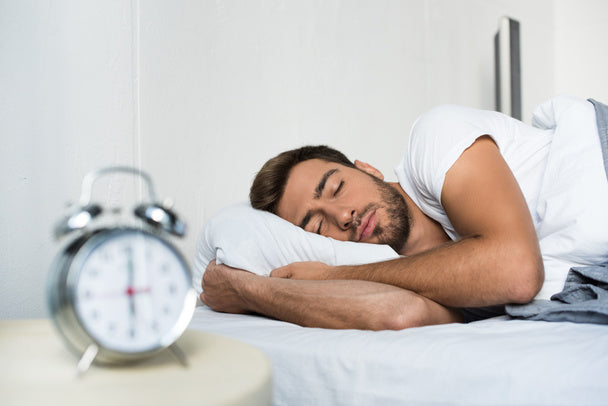
Having trouble falling asleep or staying asleep? You’re not alone. Studies reveal that 1 in 5 adults in the US struggle to sleep every single night and half of US adults experience insomnia once a month or more. Missing out on the ‘zzz’s’ does more than cause grogginess the next day–it can impact your long-term mental and physical health.
Benefits
Sleep is a natural way for our bodies to recharge and repair. Experts confirm that 7 to 8 hours of shut-eye provides many benefits, including a strong immune system, a healthy weight, a balanced mood, and increased cognitive performance. Put simply, a person with more sleep under their belt will be able to concentrate at work, exercise more efficiently, and fight off diseases much more easily than someone who is sleep-deprived.
Consequences
Insomnia is not only undesirable–it’s downright dangerous. One study from the AAA Foundation for Traffic Security showed that less sleep means a higher probability of a car accident. Fewer than five hours of sleep quadruples your chances of a crash! A lack of sleep can also cause heart complications. Your body releases higher levels of cortisol when you don’t get enough shut-eye, causing your heart to work harder and giving it less time to repair. The result? High blood pressure and potential heart attacks.
5 Tips for a Better Night’s Sleep
So what do you do with sleepless nights? Experts say that it’s all about creating a healthy routine and sticking with it. Follow these five tips for a great night's sleep:
- Limit caffeine and digital light. Both can wire us before bedtime.
- Meditation and deep-breathing exercises calm the body and mind. These practices are ideal when you’re headed to bed.
- Plan out your day. We all have busy lives, but it’s important to make sure that we’re not creating bottom-heavy schedules that keep us from sleeping a full 7-8 hours.
- Natural sunlight is your friend. Research shows that a little bit of sunlight early in the day can help you fall asleep earlier and faster.
The final takeaway? Adequate sleep = overall health. Take care of your body and your brain by setting yourself up for sleeping success.

